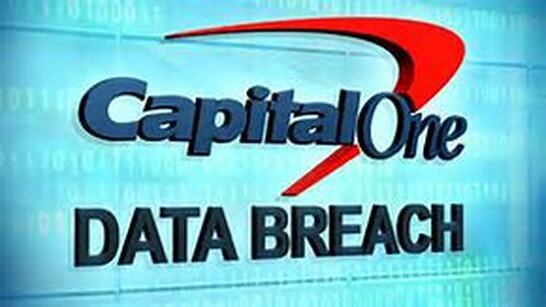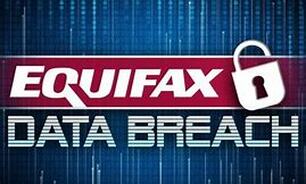|
Identity theft protection may be offered free of charge by some nonprofit organizations, but the costs associated with identity theft protection services typically provide monitoring and recovery services as well as regular access to your credit reports or credit scores.
Visit IdentityTheft.gov to locate free identity theft protection services and assistance. What is Considered Identity Theft? Identity theft is a crime that can be prosecuted as a misdemeanor or felony depending on the State and severity of the offense in which a criminal fraudulently acquires all or a portion of personally identifiable information (e.g. social security number, driver license number, etc.) for the purposes of impersonating someone else to unlawfully obtain money, property, credit, services, U.S. citizenship, or to commit acts of domestic terrorism. Identity theft may also be criminally charged and prosecuted as impersonation or fraud. The dollar amount or value of stolen property is the distinguishing factor between a misdemeanor or felony. State law establishes the minimum amount or value of the property usually between $500 to $1000 to be considered a felony theft. According to Smarter Shredding, Inc. the following facts are related to identity theft:
But identity theft crime is not just about credit fraud. A criminal armed with your personal information like social security numbers and your date of birth has unlimited access to wreak havoc on every area of your life and for many years to come. Consider what can be done with that type of information? For example, filing tax returns, stealing money from your bank or investment accounts, getting medical care, or even committing other crimes, to name a few. Personal information like your name, birthdate, and social security number are permanently attached to your identity and will never change. That is why data breaches are so problematic when credit files are compromised. Criminals can assume and use your identity for an indiscriminate number of years long after the breach. Identity theft protection will either prevent or, at least, minimize those damages. Consumer data breaches are more common than most realize. Since 2008, there have been eight (8) major data leaks affecting over 100 million consumers each. The two most recent, Equifax in March 2017 and Capital One in July 2019 caused consumers to become increasingly concerned with identity theft and securing identity theft protection. In fact, the growing demand for identity theft protection is largely due to aroused consumer awareness of the nearly incessant corporate data breaches in recent years, most scarcely reported.
The Capital One Data Breach
The latest to fall victim to a data hack was Capital One, again, affecting 100 million people in the U.S. and 6 million in Canada. Capital One alleges that the breach was manufactured by a single software engineer. Paige A. Thompson, formerly employed with Amazon Web Services (AWS). It is reported that Thompson was able to exploit a misconfiguration in Capital One’s AWS server (a credit application firewall stored on an Amazon Web Services cloud) through an incognito browser and private IP network which conceals one’s online activities to access the data. Amazon confirmed Thompson’s employment which ended in 2016, yet the breach is alleged to have taken place between March and July 2019. The Capital One breach is probably the most egregious because it impacted individuals and small businesses that applied for credit with the company during an extended period of time between 2005 and early 2019. It also involved a more extensive theft of consumer records that would be most advantageous to criminal assumptions of consumer identities. Financial analysts surmise the potential for political and regulatory actions including penalties up to $150 million against Capital One as the compromised server was under its direct management. According to Capital One’s statement, approximately 140,000 social security numbers and 80,000 linked bank accounts were compromised. Due to the size and frequency of data leaks, cyberattacks have become the biggest threat to the U.S. financial system. Most companies have taken great strides in cybersecurity to prevent outside attacks but have little defense against inside hackers. As a result, consumer data vulnerabilities will come into question among tech companies, cloud firms and banks as to how they will limit and control access to consumer data and detect potentially rogue employees. In the meantime, consumers must be proactive in protecting their identities and minimize the damages of criminal activity. The Eight Largest Data Hacks of the 21st Century The following are the eight (8) largest data hacks of the 21st Century, according to Markets Insider (July 2019).
Number of people affected: 3 billion user accounts Data released: Names, email addresses, dates of birth, and phone numbers
Number of people affected: 500 million Data released: Names, contact information, credit card numbers, passport numbers, Starwood Preferred Guest numbers, and travel information
Number of people affected: Over 412 million Data released: Names, email addresses, and passwords
Number of people affected: 145 million Data released: Names, addresses, dates of birth, passwords
Number of people affected: 143 million Data released: Social security number, birth dates, addresses, and driver license numbers
Number of people affected: 134 million Data released: Credit card information
Number of people affected: 110 million Data released: Credit/debit card and contact information
Number of people affected: 106 million Data released: Names, addresses, self-reported income, phone numbers, some credit card data status including credit balances and limits, payments, and transaction history –credit card numbers and log-in credentials not compromised.
How to Freeze or Lock Your Credit to Protect Your Identity
The best way to protect yourself against identity theft is to place a security freeze on your credit and the service is offered by all three major credit bureaus free of charge. A security freeze is designed to prevent credit, loans and services from being approved in your name without your consent but may also delay or interfere with or prohibit the timely approval of any subsequent requests or application you make regarding new credit, loans or services. Take the following two (2) steps to freeze your credit:
Please note: Credit Karma and Credit Sesame only monitor your Vantage credit score and not the FICO score which is more commonly used by lenders. The Vantage Score will not be an accurate depiction of your credit rating and how lenders determine risk in extending credit. If you decide to purchase credit monitoring services with expanded features (e.g. security freeze, identity theft insurance, etc.) it is not necessary to purchase more than one (1) service at a time. Also, make sure that you have access to your credit report and score multiple times a year upon request with your purchase.
To request a credit freeze by mail, you must submit your request by certified mail with all applicable attachments as required per each credit bureau.
Each credit bureau offers a Fraud Alert option which allows you to keep your credit file open to creditors but receive notifications when a credit lender accesses your credit file or opens a new account in your name. The Fraud Alert option is used as a more convenient identity theft protection strategy to avoid going through the process of lifting a credit freeze each time you apply for new credit or loans. How to Lift, Unfreeze, or Thaw a Credit Freeze A credit freeze may be temporary or permanent at your discretion. But, once you have frozen your credit and decide to apply for a new loan, line of credit, or utility account the freeze must be lifted for lenders to access your credit file. If you opt to lift a credit freeze by phone or mail, you will be required to provide a PIN number, password, or other personal information to verify your identity. The PIN number will be provided to you at the request for a credit freeze. If you lose or forget your identifying information (e.g. PIN, password, etc.) you may access this information by visiting the credit bureau’s website (listed in the chart above) or by phone. Use the chart above to contact each credit bureau for specific instructions. The Identity Theft Protection Loophole The loophole in consumer financial records involve the lesser-known credit reporting agencies that store and share consumer credit and other important financial information. The number of these “specialty” credit reporting agencies and the extent of data they retain remains a looming threat to consumers even with identity theft protection strategies in place. There are literally dozens (about or at least, 30) of said credit agencies according to a CBS News report (May 2018) that retain credit files on consumers. It is recommended that you contact each of these agencies that may be retaining data files of your financial information to initiate a credit freeze or lock as appropriate. One of which may apply to most everyone is the National Consumer Telecommunications and Utilities Exchange (NCTUE). The National Consumer Telecom and Utilities Exchange (NCTUE) is a member association database, powered by Equifax through which its “member companies” exchange consumer source-anonymous information such as:
The NCTUE association also share consumer payment data from utility bills, including:
NCTUE is one of many credit reporting agencies that warehouse consumer credit, payment, and banking data to determine risk in extending credit or opening new accounts. Consumer data is stored with these “specialty” credit reporting warehouses for a myriad of transactions, including but not limited to:
A link is provided below for a list of “specialty credit reporting agencies” published by the Consumer Financial Protection Bureau. It should be noted that although NCTUE is powered by Equifax, it is technically a separate organization from the credit bureau and freezing your credit file with Equifax does not affect your NCTUE file. This means that criminals may still access and open new utility, cable, or telephone accounts in your name if you fail to take measures to protect your identity with NCTUE. You will need to contact the National Consumer Telecom and Utilities Exchange (NCTUE) to place a security freeze on your Disclosure Report. The three options for sealing your Disclosure Report with NCTUE are:
You may contact NCTUE to inquire if it maintains a file of your financial information at: NCTUE Disclosure Report P.O. Box 105161 Atlanta, GA 30348 PH: 1(866) 349-5185 For instructions on how to place a voluntary security freeze on your NCTUE data file: NCTUE Security Freeze P.O. Box 105561 Atlanta, GA 30348 PH: 1(866) 343-2821 To place a fraud alert or active duty alert on your Disclosure Report: NCTUE Alerts P.O. Box 105425 Atlanta, GA 30348 PH: 1(866) 349-3233 To opt-out of the Disclosure Report: Exchange Services Center: NCTUE Opt-Out P.O. Box 105398 Atlanta, GA 30348-5398 PH: 1(888) 327-4376 It is important to note that opting-out of the NCTUE Disclosure Report will also prevent you from receiving pre-approved credit offers. You may also be required to submit your name, address, social security number, and data birth with your request for a security freeze. The National Consumer Telecom and Utilities Exchange (NCTUE) consumer reporting agency is regulated by the Fair Credit Reporting Act (FCRA) and subject to its statutes. See the link below to the NCTUE website for more information and instructions. Identity Theft and Assumption Deterrence Act The Identity Theft and Assumption Deterrence Act of 1998 established identity theft as a federal crime regulated by the Federal Trade Commission (FTC) with penalties up to fifteen (15) years in prison and a maximum fine of $250,000. The law identifies the person whose identity was stolen as the true victim where only the credit grantors who suffered monetary losses were previously considered the victims. The legislation further enables the Secret Service, Federal Bureau of Investigations (FBI) and other law enforcement agencies to combat identity fraud crimes and allows financial restitution to victims of identity theft if there is a conviction. Identity Theft Penalty Enhancement Act The Identity Theft Penalty Enhancement Act of 2004 establishes penalties for aggravated identity theft or identity theft in connection with the commission of a felony. Aggravated identity theft is punishable by a minimum sentence of imprisonment for two (2) years or by imprisonment for five (5) years if it relates to a terrorism offense. According to the Congressional Research Service, CRS (2015) “The two-year offense occurs when an individual knowingly possesses, uses, or transfers the means of identification of another person, without lawful authority, during and in relation to one of more than 60 predicate federal felony offenses (18 U.S.C. 1028A). Section 1028A has the effect of establishing a mandatory minimum sentence for those predicate felony offenses, when they involve identity theft.” The sentencing court, therefore, has the discretion not to “stack” multiple aggravated identity theft counts and may impose a sentence of less than the mandatory minimum. A link is provided below for more information on the Identity Theft Penalty Enhancement Act. Related Posts: How to Claim $125 From the Equifax Data Breach Class Action Lawsuit Settlement https://www.canmichigan.com/blog/equifax-data-breach-class-action-lawsuit-settlement How to Avoid DTE Utility Fraud: Beware of Telephone Imposters https://www.canmichigan.com/blog/how-to-avoid-dte-utility-fraud-beware-of-telephone-imposters Links: Capital One is the latest company to get rocked by a massive data breach. Here are the 8 largest hacks of the 21st Century. https://markets.businessinsider.com/news/stocks/8-largest-hacks-and-data-breaches-of-the-21st-century-2019-7-1028399924 The Capital One breach is unlike any other major hack, with allegations of a single engineer wreaking havoc https://www.cnbc.com/2019/07/30/capital-one-hack-allegations-describe-a-rare-insider-threat-case.html Capital One shares dive after data breach affecting 100 million https://www.cnbc.com/2019/07/30/capital-one-shares-dive-after-data-breach-affecting-100-million.html How to freeze your credit with Equifax, Experian and Trans Union https://clark.com/credit/credit-freeze-and-thaw-guide/ This Equifax credit database can boost your risk of phone fraud https://www.cbsnews.com/news/equifax-managed-nctue-credit-database-can-boost-your-risk-of-phone-and-utility-fraud/ What are specialty consumer reporting agencies and what kind of information do they collect? https://www.consumerfinance.gov/ask-cfpb/what-are-specialty-consumer-reporting-agencies-and-what-kind-of-information-do-they-collect-en-1813/ Disclosure Reports Provide Consumer Information Contained in Their Data Report (NCTUE) https://www.nctue.com/Consumers Identity Theft Protection following the Equifax data breach https://www.consumerfinance.gov/about-us/blog/identity-theft-protection-following-equifax-data-breach/ Federal Trade Commission: Identity Theft and Assumption Deterrence Act https://ftc.gov/enforcement/rules/rulemaking-regulatory-reform-proceedings/identity-theft-and-assumption-deterrence Identity Theft Penalty Enhancement Act http://www.smartershredding.com/identity-theft-penalty-enhancement.php Mandatory Minimum Sentencing: Federal Aggravated Identity Theft https://fas.org/sgp/crs/misc/R42100.pdf President Signs into Law H.R. 1731, The Identity Theft Penalty Enhancement Act https://www.ssa.gov/legislation/legis_bulletin_072004.html
2 Comments
[Opinion] Texas and Ohio Mass Shootings: Gun Violence Associated with Mental Health Is A Myth8/6/2019
The National Alliance on Mental Illness (NAMI) released a formal statement indicating that the public is misled when people with mental illness are iniquitously presumed culpable in the national conversation on gun violence everytime we experience a mass shooting tragedy
According to NAMI (2019), the national discourse on gun violence is contrary to research findings and only “serves to perpetuate stigma and distract from the real issues.” NAMI further advocates gun violence restraining orders, or “Red Flag” laws for ending gun violence to remove guns from anyone who poses a real, evidence-based risk of violence, and to prevent erroneously targeting people with mental health conditions. Evidence-based criteria on the relationship between gun violence and mental health There are certain conditions that increase the risks of violence among a small portion (only about 4%) of the mentally ill. Determinant factors that increase risk of violence:
According to NAMI, although treatment is the most comprehensive way to reduce risk of mental illness escalating to gun violence. less than 1/3 of adults and 1/5 of children diagnosed with mental illness are treated in a given year. Still, research suggests that most people with mental illness are not violent and are most likely to harm themselves or fall victim to violence rather than become perpetrators. The hypocrisy, deflection, and rhetoric that undermine appropriate gun laws It is important to point out that the current Administration immediately revoked the Obama-era legislation preventing the mentally-ill from buying or owning guns. The very group touted as a root cause of the gun violence epidemic. On February 28, 2017, President Trump signed the H.J. Res. 40 (Public Law No. 115-8) into law which reversed Obama’s Executive Order to add the names of approximately 75,000 recipients of Social Security for mental illness to the national background database (NICS). Spokesmen for the Trump Administration claimed that the Obama bill was rolled back because it included all disabled persons who were capable of responsible gun ownership. This is untrue. The Obama rule would have, however, made it difficult for persons with mental illness to purchase or possess guns. The NRA suggests that the Obama regulation infringed on Second Amendment Rights to buy guns when, in fact, the rule specifically targeted people receiving social security checks with a clinical mental health diagnosis. In recent statements, the GOP blamed mental illness and video games for the rise in gun violence and mass shootings. But critics indict Trump and the GOP as complicit in the crisis along with those who have the propensity, capability, and access to exact mayhem on the public by avoiding the real issues like banning military-style assault weapons and racism. National Disparities in Access to Mental Health Care NAMI reports, of the one in five Americans who suffer with mental health conditions, only 43% accessed care in 2018. The lack of mental health professionals throughout the country is a significant factor in the mental health treatment disparity. According to the National Alliance on Mental Illness (NAMI), more than 60% of U.S. counties do not have a single psychiatrist causing long waits in accessing care for victims, survivors, and first responders impacted by gun violence tragedies. NAMI calls for a national priority for access to mental health care by Congress and the Administration to assist those who are traumatized and protect communities especially during times of senseless violence. It is recommended that policies and programs are available which provide access to:
Federal and state policy and program recommendations are based on removing barriers for people who are willing to seek treatment when they need it and improving access to treatment as a solution to gun violence associated with mental illness. Links are provided below for more recommendations for federal standards to remedy gun violence associated with mental health.
Mental Health Care Disparities in Michigan
Southwest Solutions released a report of unmet mental health and substance abuse treatment needs in Michigan according to a study by the Michigan Health Endowment Fund (July 2019). According to the report, one in six Michiganders experience mental illness, yet approximately 38% are not receiving treatment. That is nearly 660,000 individuals with mental health conditions are going untreated. About 50% of untreated mental health cases are in the Detroit area. Likewise, an estimated 80% of the 638,000 Michigan residents with substance use disorders (SUD) are also untreated. Related factors in untreated mental health care:
Across payor types, Medicaid recipients are most likely to remain untreated for mental illness.
Mental health disparities for people with specific disorders who lack appropriate care or do not receive treatment are also highlighted in the report:
Additionally, 41% of male children and more than 1/3 of female children (ages 0 -17) with mental illness are not receiving care in Michigan. The study cites a combination of factors for the mental health care crisis in Michigan, such as a shortage in mental health professionals including psychiatrists and other behavioral health providers which limits access to treatment. According to the report, the availability of mental health services fall short of national ratio standards particularly in the northern half of the Lower Peninsula and parts of the Upper Peninsula. Michigan has 11 child and adolescent psychiatrists per 100,000 residents far below the recommended 47 to 100,000 ratio. Mental health residential treatment facilities are also in short supply in Michigan. With only 17 facilities over-populated with 590,000 consumers per facility far beyond the U.S. average of 240,000 per residential facility is also an indicator for the gap in services.
Former Republican Governor, Rick Snyder considered red flag legislation in 2018 that is currently supported by Democratic Governor-elect, Gretchen Whitmer. The proposal allows for family or law enforcement to obtain an “extreme risk protection order” on an individual who poses a valid threat of danger to themselves or others to be banned from buying or owning a firearm for a specified amount of time. But due to partisan divides and Republican control of both chambers it is not likely in the foreseeable future that legislative reforms to purchase or carry in Michigan will change. Michigan GOP leaders posit that “red flag laws would violate an individual’s rights to due process and ignore the underlying issue of the country’s mental health crisis”, according to Rep. Beau LaFave (R-Iron Mountain), The problem with this assertion is that studies by reputable mental health organizations suggest that mental illness, the most pervasive public health crisis in America is rarely associated with the rise and extent of mass shootings we’ve experienced in recent years. While some argue that mental health is the fundamental problem, others cite the growing deterioration of race relations (racism) as the real issue. And, in fact, young, male, white nationalists have tended to be the recurring theme as culprits in the majority of these “hate crime” massacres as of late. What is President Trump doing to address gun violence? In the press conference held in the wake of the El Paso and Dayton shootings, President Trump addressed with his proposed plans to address both the gun violence and mental health crisis. The president persisted in the rhetorical dialogue that culture, video games, and mental illness underpin domestic terrorism. In an attempt to condemn racist acts of violence, President Trump states, “culture must be shifted from one that celebrates violence to one that celebrates the inherent dignity and worth of every human life.” He further quotes, “Mental health and illness pulls the trigger not the guns.” Some of the steps he promises to take to end and prevent gun violence include:
There was no mention of reversing the H.J. Res. 40 to add the names of individuals with mental health diagnoses to the national database system. Conclusion A common denominator in the two studies presented here indicate disparities in the treatment of mental illness as adequate and efficacious access to care. But the erroneous assumption that mass shootings are inextricably related to mental illness is an impediment to empirical research evidence. The narrative must be reframed in national dialogue if legislators and society-at-large are serious about the intervention and prevention of senseless killings whether its mass shootings, hate crimes, or other forms of gun violence. It is a complicated issue that requires legislative urgency but also must involve comprehensive public policy reforms related to the primary issue. For example, occupational licensing reform may be necessary so as to expand the scope of practice for paraprofessionals to fully leverage the reach of providers in meeting mental healthcare needs. Gun violence laws must be approached in much the same common-sense way so as to target individuals who pose a real threat to public health and safety. For example, the 41% of young males (not race specified) identified in the Michigan study as a mental health disparity due to the lack of access to treatment. This would be an appropriate demographic that should be considered when constructing and proposing gun laws. Consequently, young males were also identified in the national study. Mental illness, however, can be a factor in relationship with mass shootings and other gun violence but under very specific and extremely rare conditions that should not be generalized to the entire mental health population. Unfortunately, while President Trump fell short in declaring war on racism it also became clear that the president and his cohorts will continue on course to scapegoat mental illness as the priority target. The real positive takeaway from the President’s response is the change in language. Due to the NRA’s zero-tolerance approach to gun rights, reframing the problem as domestic terrorism just may ignite political action or, at least, a public outcry for action. But the public overall has been transient on the issue of gun laws and reform mainly because of cultural wars where some individuals and communities resist the idea of government infringement not only on their rights but also on their social norms. But casting mass shootings in the framework of terrorism changes the level of the threat and provides some opportunity for change. Consult the articles below for more information on proposed gun law legislation in Michigan and the potentiality of gun restrictions that may inadvertently target African-Americans.
Related Posts:
Michigan’s Health Report: Chronic Disease and Life Expectancy https://www.canmichigan.com/blog/michigans-health-report-chronic-disease-and-life-expectancy Community Resources: Mental Health and Drug Treatment Services https://www.canmichigan.com/community-resources-michigan.html Links: NAMI Statement on Mass Shootings in Texas and Ohio https://www.nami.org/About-NAMI/NAMI-News/2019/NAMI-Statement-on-Mass-Shootings-in-Texas-and-Ohio?fbclid=IwAR2naCqi_Hrr397UgK9DKMyBlJGQS77VfYJ8ZikMk6Ta-SFPJj8HV76G9-s NAMI: Violence and Gun Reporting Laws https://www.nami.org/learn-more/mental-health-public-policy/violence-and-gun-reporting-laws Trump made it easier for the mentally ill to get guns when he rolled back Obama regulation https://www.nbcnews.com/news/us-news/president-trump-made-it-easier-mentally-ill-get-guns-when-n1039301 H.J. Res. 40 – 115th Congress (2017 -2018) https://www.congress.gov/bill/115th-congress/house-joint-resolution/40 Southwest Solutions: Study Details Growing Crisis of Untreated Mental Illness in Michigan http://www.swsol.org/study-details-growing-crisis-of-untreated-mental-illness-in-michigan/?fbclid=IwAR0fn399qwATeQEA4i_CH_zQr-fZUd62N8hU3P-_Rx92s1QBSPOFPGhzjbk Massacres revive calls to strengthen Michigan’s middling gun laws https://www.detroitnews.com/story/news/politics/2019/08/05/anger-but-action-michigan-gun-laws-spotlight-after-mass-shootings/1923417001/ Actually, gun restrictions will target the black community https://thehill.com/opinion/criminal-justice/456243-actually-gun-restrictions-will-target-the-black-community?rnd=156503347
Due to such a large data leak of consumer’s personal information most claimants should qualify for at least the minimum $125 settlement, but it also signals long-term risks for identity theft which can be problematic in the future if the minimum settlement is accepted.
It is important to note that the $125 Alternative Reimbursement Compensation may be reduced by the number of valid claims filed by Equifax customers as benefits will be disbursed on a proportional basis. See the Equifax Data Breach Settlement website for further information. Settlement options available to claimants are provided below.
Option #2: Cash payment of up to $20,000 for:
Option #3: You are entitled to a minimum of seven (7) years of free identity restoration services after the settlement becomes final on December 19 even if you do not file a claim if it is confirmed that your credit data was compromised in the breach. Contact the Federal Trade Commission (FTC) settlement administrator for additional help. Consumers who fail to file a claim will forfeit all benefits provided under the final settlement agreement once approved in federal court. How to opt-out of the Equifax data breach settlement Consumers may choose to opt-out of the Equifax class action lawsuit settlement if they find that their data was compromised in the breach and can prove losses above the $125 settlement offer. The opt-out option does not forfeit your rights to claim damages against Equifax and claimants can still file a separate lawsuit against the company. Claimants with losses above the $125 settlement agreement due to an Equifax-related identity theft or fraud are eligible for damages of $25 per hour spent in identity restoration activities up to a maximum of $20,000. Seek additional legal advice from an attorney for damages in excess of $20,000. Claimants wanting to opt-out of the class action settlement offer of $125 in lieu of filing a separate lawsuit must submit a “request for exclusion” in writing by November 19. Consumers who fail to file a claim for the Equifax data breach class action settlement forfeit all rights to future claims for damages. Important deadlines to remember
Related Posts:
How to Avoid DTE Utility Fraud: Beware of Telephone Imposters https://www.canmichigan.com/blog/how-to-avoid-dte-utility-fraud-beware-of-telephone-imposters How to Understand FICO Credit Scores, Ranges, and Rankings https://www.canmichigan.com/blog/how-to-understand-fico-credit-scores-ranges-and-rankings |
Deborah MitchellWelcome to The Community Advocate Network. My name is Deborah Mitchell, I am a graduate in Social Work and Registered Social Work Technician. My human service background began in 2007 which includes medical case management and service navigation for the indigent population, outpatient mental health counseling with substance use and abuse disorders, supportive employment and job development for mental health consumers, and structured living domicile management. Archives
December 2023
Categories
All
|






 RSS Feed
RSS Feed